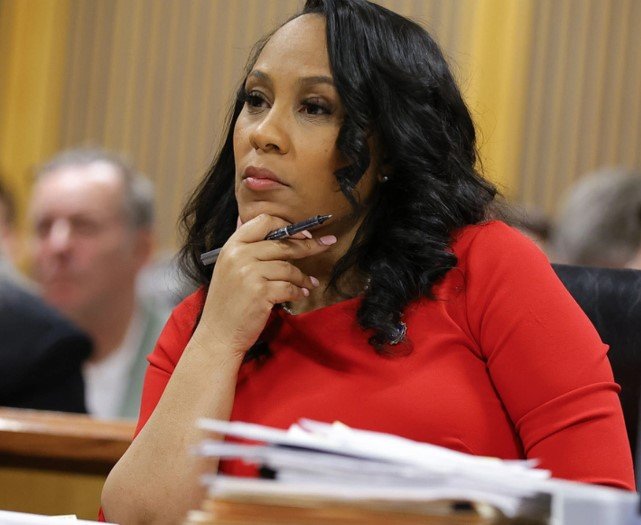Fulton County District Attorney Fani Willis, the driving force behind the election racketeering case against President-elect Donald Trump and 18 others, has successfully secured re-election. Her decisive victory over Republican challenger Courtney Kramer not only solidifies her position but also paves the way for the highly anticipated trial to resume against Trump and the remaining defendants who have not yet entered guilty pleas.
Willis’s triumph in a Democratic stronghold like Fulton County was widely expected, especially given her significant role in high-profile cases. Kramer, who has previously worked as a consultant on Trump’s legal team following the 2020 election, was unable to overcome the established Democratic support in the area.
Implications for the Ongoing Case
With Willis remaining in office, the Fulton County case against Trump and others is set to proceed amid a backdrop of ongoing legal challenges. Trump, having expressed intentions to quash various legal cases against him if re-elected, faces significant hurdles in doing so, particularly concerning the Georgia case. Experts note that the president has limited options to intervene in state-level prosecutions compared to federal indictments.
As the Justice Department’s special counsel, Jack Smith, draws closer to finalizing federal cases, the focus now shifts back to Georgia. The trial, which remains uncertain in its scheduling, will likely continue to be clouded by controversy and complications stemming from allegations surrounding Willis’s professional conduct.

Challenges Ahead for the Case
The Fulton County case has been beset with complications, including challenges to Willis’s oversight due to her relationship with Nathan Wade, the lead prosecutor assigned to the racketeering charges. This affair has raised questions regarding potential conflicts of interest, leading to legal maneuvers by Trump and some co-defendants attempting to disqualify Willis from the case.
To date, four of Trump’s co-defendants have entered guilty pleas as part of agreements with prosecutors, while Trump and 14 others, including former White House Chief of Staff Mark Meadows, maintain their not guilty pleas. The lack of a set trial date leaves uncertainty surrounding the timeline for legal proceedings.
Courtroom Controversies and Allegations
Efforts by Trump and his co-defendants to challenge Willis’s qualifications have contributed to delays in the case. A notable motion filed by Michael Roman, a former Trump campaign official, claimed that Willis’s relationship with Wade compromised the integrity of the case. Despite these challenges, Fulton County Superior Court Judge Scott McAfee ruled in March that Willis could remain involved, though he highlighted a “tremendous lapse in judgment” in her personal decisions.
The Georgia Court of Appeals is set to hear arguments on December 5 regarding whether Willis should be removed from the case altogether. This ongoing saga continues to attract significant media attention, as the implications for both Trump and Willis could have far-reaching consequences for the legal landscape.
Looking Forward
With Willis’s re-election and the trial looming, the tension surrounding the proceedings will likely escalate. As both sides prepare for what promises to be a contentious legal battle, the outcome will have profound effects on Trump’s future and the broader political context.
The intersection of legal and political drama in this case illustrates the complexities of modern American governance, where personal conduct and political ambition often collide. As the legal battles unfold, the nation watches closely, waiting to see how this high-profile case will shape the future of American politics and accountability.
